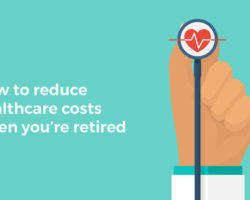People nowadays have access to tons of information. That’s why they often tend to make stuff up. They might do it unknowingly, just to impress other people, but some of these stories can go viral. And that’s how myths are born. There are myths about anything and everything out there, even credit card myths.
Myths are fun and entertaining, great subjects for conversation, but there’s one important downside to them. They tend not to be true. Unfortunately, a lot of people believe these myths. And while stories like Bigfoot or the Jersey Devil can be harmless, credit card myths can do a lot of damage.
Here are three of the most common credit card myths out there:
1. Each one of us has only one credit score
Life would be a lot easier and less stressful with just one credit score. A lot of people believe this myth because they want it to be so. As a result, they pay for their scores each month and subscribe to credit monitoring programs, hoping that they’ll see the same score that their credit card issuer sees. However, this myth is not true.
What you need to know is that your credit score is based on your credit report. Experian, Equifax and TransUnion, the three major credit bureaus, may have different information about you. So from the start your scores can vary.
And there are also several credit scoring models out there. Even if they look at the same information, they could focus on different things, such as your on-time payment history or your credit utilization rate.
2. You need to carry a balance if you want to have a good score
People who believe this myth will carry unnecessary debt and pay interest for no good reason. Even worse, their credit score will go down, not up. This is because credit bureaus look at the balance from your last statement. They’re not interested in what was left over after you received that statement and paid the bill.
The best thing to do, if you like to use your credit card, is to pay your bills in full as often as possible. This way you will both save money and improve your credit score.
3. Credit bureaus can’t make mistakes
Believing that credit bureaus can’t make mistakes is one of the most harmful mistakes you can make. Credit bureaus do make mistakes. And if you’re not paying attention, those mistakes could end up costing you dearly. That’s why it’s important to check your credit reports for errors each year. If you do find any errors, go and dispute them immediately.
According to the Federal Trade Commission, about 20% of all credit card users have errors on at least one of their major credit reports. This percentage is huge. So don’t be lazy and check your reports. The extra minutes you spend looking over them can save you money and help you maintain a good credit score.
4. Closing old credit card accounts helps improve your score
And old myth, yet still believed by many, this one can affect the credit score of those ill-informed in two different ways. By closing an account, you reduce the amount of credit available to you. If you don’t also reduce spending, you will just end up increasing the share of available credit you use. Additionally, you’re also decreasing the average age of your accounts. The length of your credit history determines 15% of your score.
Rather than closing your old credit card, use it for small monthly payments, such as groceries, and pay it off every month.
5. The number of credit cards also affects your score
This myth goes hand in hand with myth number 4 and, just like that one, it’s also false. Sure, your credit score is temporarily lowered whenever you apply for a new credit card. But the truth is that owning more credit cards isn’t worse than owning just one.
In conclusion
When it comes to your credit health, it’s better to not believe anything you hear. Double check everything or ask a professional. Otherwise, you risk making mistakes that can end up hurting you really bad.










